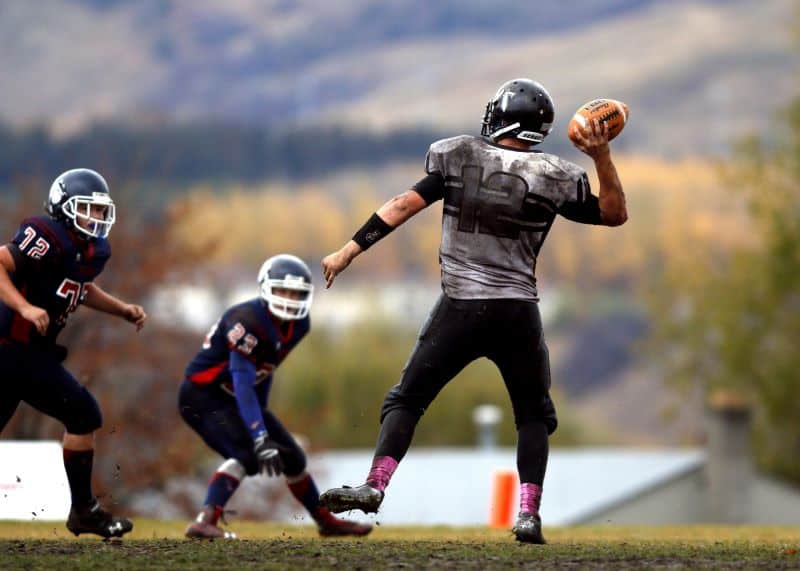
27 Oct How to Handle a Chipped Tooth from Fall Sports
How to Handle a Chipped Tooth from Fall Sports
Dental injuries are common in sports, and even with proper precautions, high-impact activities can lead to chipped, cracked, or even dislodged teeth. Understanding the risks and immediate steps can save you time, pain, and money in the long run. Common causes include falls, direct contact with other players, or accidental impacts with equipment.
Common Causes of Chipped Teeth in Fall Sports
Sports like football, basketball, soccer, and hockey tend to involve close physical contact and high-impact movements, which increases the risk of collisions and falls. Equipment such as helmets or sticks can also contribute to unexpected impacts. Knowing these risk factors is essential for selecting proper protective gear and training techniques.

Types of Tooth Injuries in Sports
Sports injuries to teeth fall into several categories:
Minor Chips and Fractures: These are typically cosmetic issues but can leave sharp edges that irritate the tongue or inner cheeks.
Cracked Teeth: Cracks may extend into deeper layers of the tooth, causing pain and potential infection risks.
Tooth Intrusion or Displacement: A rare but serious condition where the tooth is pushed deeper into the gums.
Recognizing these differences can guide you on whether immediate care or home remedies are sufficient until a dental appointment.
Initial Steps to Take After a Tooth Injury
Acting quickly after a tooth injury can prevent complications and make treatment easier.
Immediate Actions to Minimize Pain and Damage
After an accident, avoid touching the injured tooth or biting down. If there is bleeding, gently rinse your mouth with warm water and use gauze to apply light pressure if necessary. A cold compress near the affected area can help reduce swelling and numb the pain. Keeping the tooth clean will prevent debris from entering any cracks or exposed areas.
How to Assess the Severity of a Tooth Injury
When assessing the severity of a chipped tooth, check for visible cracks, fractures, or exposed inner layers (such as yellow dentin or red pulp). Sharp edges, persistent pain, or sensitivity to cold and hot temperatures may indicate a need for immediate care. For minor chips, you might only experience mild discomfort, while larger fractures may involve throbbing pain.
When to Seek Immediate Dental Care
For severe pain, bleeding, or loose teeth, it’s important to consult a dentist immediately. In cases where a portion of the tooth is missing, try to find the piece and store it in milk or saline solution, as this may help with reattachment if you reach a dentist promptly.
Home Remedies for Temporary Relief
While a chipped tooth often requires professional attention, temporary relief measures can reduce discomfort until you can visit a dentist.
Managing Pain and Sensitivity at Home
If you’re experiencing pain or sensitivity, rinse with a saltwater solution to keep the area clean. Over-the-counter pain relievers can alleviate discomfort, but avoid applying aspirin directly to the gums, as this may irritate the tissue.
Temporary Fixes for a Chipped Tooth
Using dental wax, available at most pharmacies, can cover the sharp edges and prevent the chipped area from cutting your tongue or cheeks. Some drugstores also carry temporary filling materials that you can use to fill the chip temporarily.
Medical Treatment Options
Modern dentistry offers a variety of treatment options to restore both the appearance and function of chipped teeth, depending on the extent of damage.
Bonding and Veneers for Minor Chips
For small chips, dental bonding is a quick and cost-effective solution. The dentist applies a tooth-colored resin to the chipped area, sculpting and polishing it to blend seamlessly with the rest of your tooth. Veneers, thin shells of porcelain, provide a more durable and aesthetic fix, especially for front teeth.
Crowns and Root Canals for Severe Injuries
When the chip extends deeper into the tooth, exposing the pulp or nerves, more advanced treatments like crowns or root canals may be necessary. A crown can cover the entire damaged tooth, restoring its structure and protecting it from further damage. If the injury involves nerve damage, a root canal will be performed to remove infected or damaged pulp, followed by sealing the tooth and placing a crown.
Long-term Care and Follow-up Treatments
To ensure lasting results, regular follow-ups with your dentist are essential. For serious injuries, routine X-rays and exams can help track healing and detect potential complications early. If you’ve had a crown or bonding, it’s wise to avoid chewing on hard objects or foods, as these could weaken or dislodge the repaired area.

Preventing Tooth Injuries in Fall Sports
Preventive steps are essential to avoid tooth injuries in sports.
Protective Gear and Equipment
The best defense against chipped teeth is a custom-fitted mouthguard, which cushions impacts and protects the teeth, jaw, and soft tissues. Helmets and face masks provide added protection, particularly for high-contact sports like football and hockey.
Tips for Safe Play in Contact Sports
Always follow safety guidelines for your sport. Training on proper techniques, especially for tackles or falls, can reduce injury risks. Coaches and parents should reinforce safe play strategies, such as being aware of surroundings and wearing the right equipment.
Potential Complications of Ignoring Tooth Damage
Ignoring a chipped tooth can lead to several issues over time, emphasizing the importance of prompt treatment.
Long-term Dental Health Risks
Over time, untreated chips can develop into larger fractures, creating uneven wear on surrounding teeth. Misalignment and bite issues may arise as the body compensates for the damaged tooth, potentially leading to temporomandibular joint (TMJ) disorders.
Infection Risks from Untreated Tooth Damage
If the inner pulp is exposed due to the chip, bacteria can enter, leading to infection, abscess formation, and even bone loss. Prompt dental care can help avoid these complications and ensure overall oral health.

Frequently Asked Questions (FAQs)
How Can I Tell If My Tooth Injury is Serious?
Look for signs like sharp pain, exposed nerves, or a loose tooth. Pain that intensifies when eating or drinking, especially with hot or cold items, may indicate a more serious issue.
Can I Eat or Drink Normally After a Chipped Tooth?
If it’s a minor chip, you can eat, but avoid biting down on hard foods. Stick to soft, cool foods if there’s pain or sensitivity.
What Are the Costs of Fixing a Chipped Tooth?
Costs vary based on the treatment required. Bonding is generally affordable, while veneers and crowns are more expensive. Root canals and implants are at the higher end of the cost spectrum.
How Can I Find an Emergency Dentist Nearby?
Emergency dentists are often available at clinics or through referral networks. Many cities have dental hotlines, and apps can help locate the nearest service provider.
Are There Foods to Avoid with a Chipped Tooth?
Yes. Hard foods like nuts, crunchy snacks, and sticky candies can further damage the chipped area. Stick to soft, mild foods like yogurt and soup until the tooth is repaired.
Will Insurance Cover Chipped Tooth Treatment?
Insurance may cover part or all of the treatment costs, depending on the injury and your plan’s specifics. Checking with your provider will clarify your coverage and options.
What Happens if I Don’t Treat a Chipped Tooth Right Away?
If a chipped tooth isn’t treated promptly, it can lead to further damage. The chip may enlarge, making the tooth more susceptible to fractures, sensitivity, and infection. Over time, the exposed area can wear down, impacting your bite and leading to pain or alignment issues. Untreated chips can also allow bacteria to enter, potentially causing cavities or infections in the tooth pulp, which might eventually require a root canal.
Conclusion: Protecting Your Smile for Future Seasons
Preventing injuries with the right gear, knowing how to respond when accidents happen, and following up with proper care can help keep your teeth safe and healthy throughout the sports season. Whether you’re a dedicated athlete or a weekend player, prioritizing dental protection will help you stay in the game without compromising your smile.


Sorry, the comment form is closed at this time.